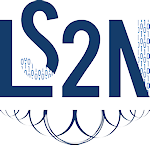The demand for flexible, adaptable robots capable of interacting with their environment (e.g. navigation, handling, cooperation) is growing. This is why the sensor-based controllers, which make it possible to include external sensory feedback in robot control, have been widely developed in recent years, both for industrial, medical, air, space and marine robotics and in the context of autonomous vehicles (ground mobile robotics).
The first research on sensor-based control techniques took place at the end of the 1980s, with the use of proximal and force and vision sensors, and much work has been done to improve the performance of this type of controllers, in particular by modelling various sensor primitives.
Despite the fact that, empirically, sensor-based controllers have shown that they have interesting performances, these performances are by no means guaranteed, which is a major obstacle to the widespread use of their large-scale use. This is related to the fact that, despite three decades of research on the subject, two broad classes of problems have been little explored:
- The study of the singularities of sensor-based controllers
- The study of their stability.
The objectives of the project SESAME are take advantage on recent mathematical advances in order to:
- study singularities and stability of certain classes of sensor-based controllers
- synthesize globally asymptotically stable sensor-based controllers, whose performance (i.e. convergence properties towards the desired configuration, abseance of local singularities and minima) are guaranteed in all object/sensor related configurations.






